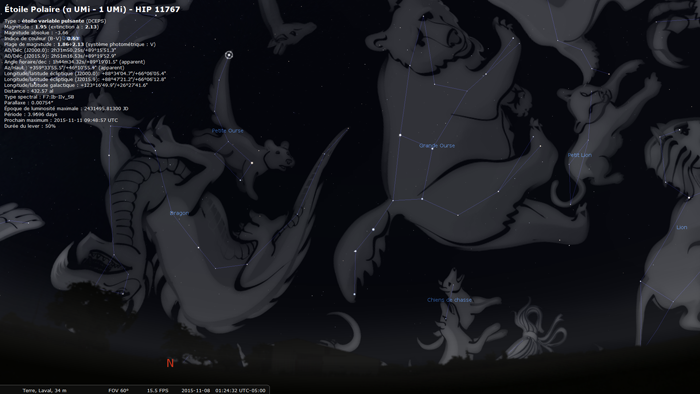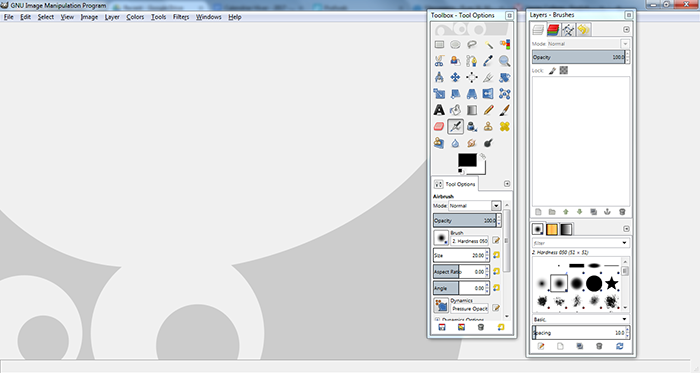Contributions on Free and Open Source Software
Free and open source software (FOSS) provides an interesting alternative to commercially-available products. With continued pressure for colleges to find new ways to respect their budget parameters and increased privacy concerns related to what information our software is collecting and communicating to the multinational corporations that create most of our software, it is important that the free and open source movement continue to thrive so that we have alternative means for us to use our technology.
It should not come as too much of a surprise that the FOSS movement resonates within academic circles, since many of the high-profile FOSS projects were initiated within colleges and universities. In some cases the software began with a small contingent of programmers hacking late into the night for fun, but with a purpose in mind. Other more formal projects arose with the financial backing from substantial university endowments or software foundations.
A number of publications on Profweb that were submitted by members of the college network share the advice and experiences of practitioners using free and open source software at their colleges. We have prepared the following collection of publications in hopes that you will be inspired to download and try some of them out, as they will surely increase your productivity and enrich your teaching experience.
Real Life Stories
- On Using Stellarium: “There Is Nothing Wrong with Treating Yourself a Little”
- Karine Aeschlimann, College Montmorency, November 2015
- Karine Aeschlimann from College Montmorency reminds us that fun can be an important ingredient for both the teacher and the student. Karine, who is a Physics teacher, shares how she uses Stellarium, an open source planetarium software in conjunction with an inflatable observatory to create a unique student experience in her Astronomy and Astrophysics course.
- Free and Open Source Software: Much More Than Touch Screens – Useful and Responsible Computing
- Kurt Vignola, Cégep de Rimouski, March 2015
- The democratization of education should be concerned with all facets of learning, including the choice of software that we use. Kurt Vignola has been using free and open source software including the LibreOffice productivity suite both personally and professionally as part of his teaching in History for a number of years. In this story, Kurt points out some of the ethical considerations when choosing software and reminds us that students may not be as tech savvy as their reputation would lead us to believe.
- Zotero: How to Seduce in Methodology
- Dany Thibault, College Montmorency, October 2014
- Intellectual honesty in academia is extremely important. Every new cohort that arrives in our CEGEPs should be reminded about plagiarism and the potential consequences of not properly citing sources. Why not also take the opportunity to introduce students to an excellent tool for collecting and managing their documentary resources? In this Real Life Story, Dany Thibault, a Social Science teacher at College Montmorency introduces us to the open source research and referencing tool Zotero, and provides us a link to tutorial videos (in French) that he created for his students. You can also check out a Digital Tool article that Dany Thibault wrote on Zotero, which provides in-depth information on Zotero and its potential for use within teaching.
- J’assiste au cours, peu importe le lieu et le moment
- Jean Labbé and Isabelle Delisle, Cégep de Lévis-Lauzon, April 2012
- Jean Labbé and Isabelle Delisle provide us with an excellent story on the use of the BigBlueButton, an open source virtual classroom platform that integrates well with the Moodle learning management system. The use of this synchronous teaching technology allows for Mr. Labbé to reach students outside of college through the Internet in the geographically dispersed region where Cégep de Lévis-Lauzon students live. The story is complete with a screencast by Jean Labbé to demonstrate his use of the platform.
- L’apport du logiciel libre dans l’enseignement de la musique
- François Goudreau, Cégep de Trois-Rivières, March 2010
- Some of the most fascinating and inspiring publications on Profweb come to us from Music Teachers. In this Real Life Story, François Goudreau from the Cégep de Trois-Rivières provides the readership with a complete list of open source solutions that are useful for teaching and learning music, from ear training to recording! Most of the software packages presented in this article are still in development, and some were updated in 2016.

The Big Dipper, the Small Dipper and the Dragon constellations on Stellarium.

Jean Labbé explaining a concept, using his wireless microphone.
Articles
- Free software, Freeware, Open, Proprietary, and Cloud-based: How to Make Sense of it All?
- Christophe Reverd, Vitrine technologie-éducation, March 2015
- In this article, Christophe Reverd from La Vitrine technologie-éducation provides us with a helpful overview to clarify some of the jargon that is used for software like ‘free, open, proprietary and cloud.’ In French, there are two different words for ‘free’ libre and gratuit), which helps to understand the importance of software that is truly free. You may be able view and modify the source code and make copies legally (free, as in freedom) and the software may not cost anything (free, as in free beer). The article also explores cloud computing, a completely different model of using software.
- Going Back to the Source with Linux
- Christophe Reverd, Vitrine technologie-éducation, February 2017
- Christophe Reverd explores 2 different approaches to installing GNU/Linux the free and open source operating system – on a laptop and on a tablet. While Christophe recommends that these 2 approaches only be undertaken by advanced users, the article also includes instructions on how to try out Linux using a USB key without installing it to a computer.
- A Program or Discipline-based Database for Freeware or Free Software in your Teaching
- Nicole Perreault, REPTIC, Fédération des Cégeps, May 2014
- Nicole Perrault, who is the Community Leader for the IT-Representatives Network (REPTICs), provides an overview of various FOSS initiatives within the college network. In this article from 2014, she also provides an element of the political context, namely that the Conseil du Trésor requires all public organizations that will be spending $25,000 or more for software acquisition or renewal to consider the use of FOSS. Nicole also reminds us about the important distinction between proprietary free software and open source software (which is also free).
- Mathéma-TIC: une ressource précieuse toujours en évolution
- Samuel Turcotte, February 2017
- Samuel Turcotte, an intern who worked with Profweb during the fall semester of 2016 presents the history of the Mathéma-TIC project in this article. The project offers a selection of Open Educational Resources for teaching math at the college level, including video tutorials and active learning lesson plans. Students are invited to complete formative exercises in the WeBWorK on-line environment, a free and open source platform developed by the Mathematical Association of America. It is used for the creation of online assignments for math and physics. Samuel Bernard, the teacher at the heart of this project, will be giving a presentation at the upcoming ADTE conference on March 15, 2017.
- Getting to Know You: Creating Your On-line Biography with Profweb
- Ryan W. Moon, Profweb, January 2015
- Submitted by Ryan Moon, an Editor from the English Edition of Profweb, this article details how to use Profweb’s free web space hosting service to create a personal biography as a means of introducing yourself to students. Ryan wrote the article on a computer that was running the GNU/Linux operating system (Ubuntu), and used a suite of free and open source tools that included LibreOffice (word processing), the GIMP (image editing), Filezilla (file transfer), Kazam (screencast captures to create tutorials) and OpenShot (video editing).
- Enseigner les mathématiques : des ressources TIC pour le collégial
- Profweb Team, October 2015
- In anticipation of the 59th conference of the Association mathématique du Québec, The Profweb editorial team prepared an updated compilation of publications in line with the mathematics discipline. Amongst the featured publications is a mention of the ADTE’s blog entries on the the FOSS tools R (for statistical analysis), Sage (mathematical package) and Maxima (a computer algebra system).
Digital Tools
- Using WordPress for your Websites and Blogs
- Guillaume Vachon, Profweb, December 2014
- Chances are you have visited a website that was created with the WordPress, an open source content management system. Over a quarter of all websites run on this technology. WordPress is popular since you can create web pages and whole websites with minimal knowledge of the HTML markup language. The tools gained popularity as a Web 2.0 platform for blogging. In this Digital Tool article on WordPress, Guillaume Vachon from Profweb reminds us that we can install and run this technology within the Web Space provided by Profweb. He also provides an overview of the different components of the interface for building pages and posting to the blog.
- Moodle
- Catherine Rhéaume, Profweb, March 2016
- Many CEGEPs in Quebec have adopted the Moodle on-line Learning Management System to help structure their courses and provide documentation, assignments and activities to their students whenever and wherever they may be. But how many are aware that this platform is free and open source? In this digital tool article, Profweb’s own Catherine Rhéaume provides a number of use cases for the platform and links to Profweb publications that have been written about the tool. She also tells us how we can get started using the portal, reminding us that DECclic provides hosting and support for the platform to the college network.
- MediaWiki
- Guillaume Vachon, Profweb, January 2015
- Web 2.0 tools facilitate the creation of on-line content. A number of these were created as open source projects. The on-line encyclopedia Wikipedia is built on a the MediaWiki platform, which is one of the platforms that Profweb offers as part of its free Web Space hosting service. Wikis provide users with a simple editor for web pages and a means of organizing content. In this Digital Tool article, Guillaume Vachon from Profweb provides us with an overview of the platform, some potential pedagogical uses and includes important information to get started on the platform.
- The GIMP: A Powerful Free Image Editor for Teachers and Students
- Ryan W. Moon, Profweb, February 2017
- A number of free and open source solutions have been around now for more than 2 decades and are very mature solutions. The GNU Image Manipulation Program (aka The GIMP) is an extremely powerful image editor that uses layers and can be extended with plugins, filters and scripts. In this Digital Tool article, Profweb Editor Ryan Moon provides some potential use cases for the software, while sharing some advice and a link to a beginner’s tutorial for this amazing program.

The Interface of the GNU Image Manipulation Project’s tool, the GIMP.
Conclusion
There is a vast selection of free and open source software offering a wide range of functionality which is useful to all stakeholders in the college network. The rich selection of publications on Profweb that introduce the college network to these tools attests to the fact that many teachers have taken notice of their importance.
Profweb will continue to document the innovative and inspirational practices of teachers in the network who are using free and open source software in the coming years.
If you are currently using free and open source software, we encourage you to use the comments area below to share your experience. If you have colleagues that are using FOSS as well, why not forward this article to them and ask them to comment?

